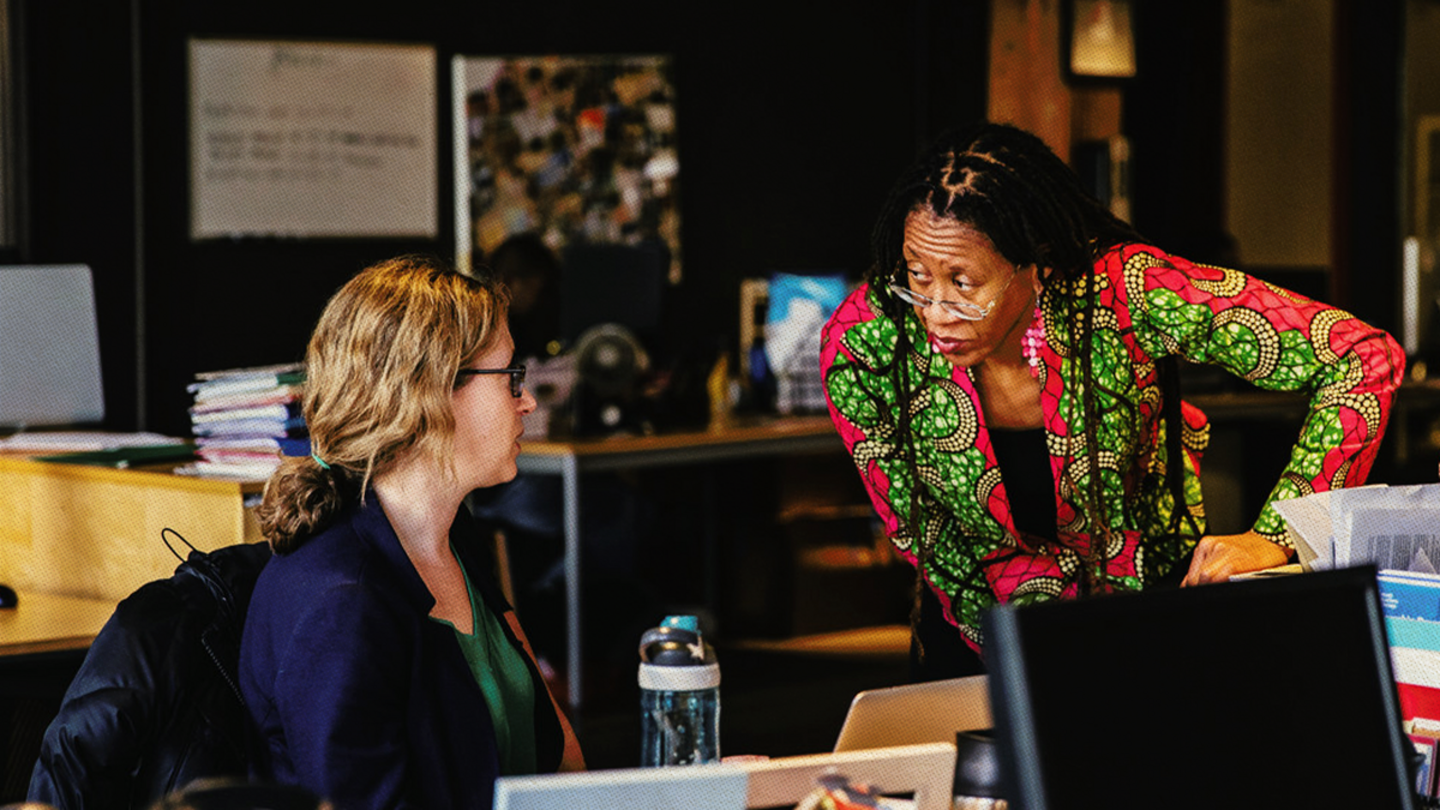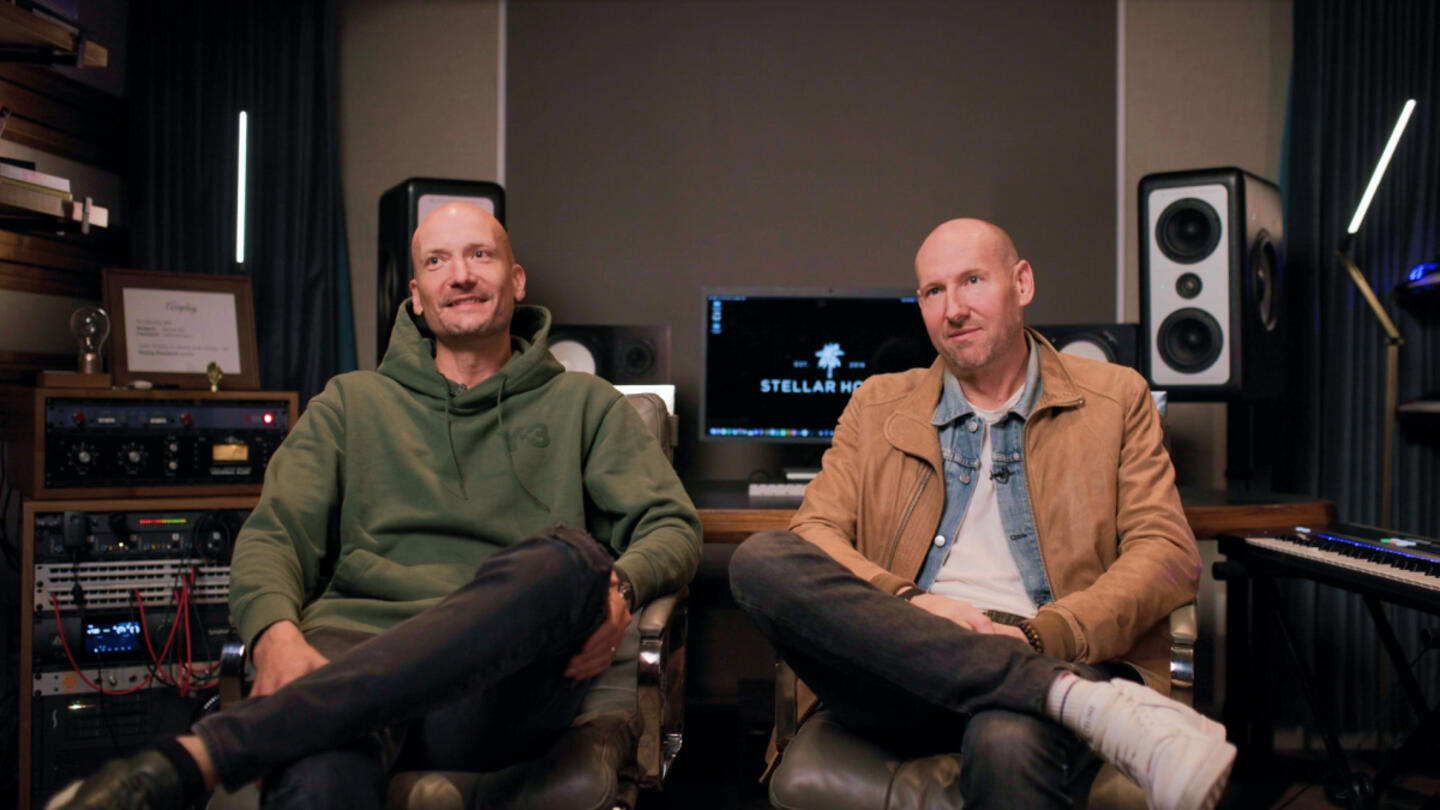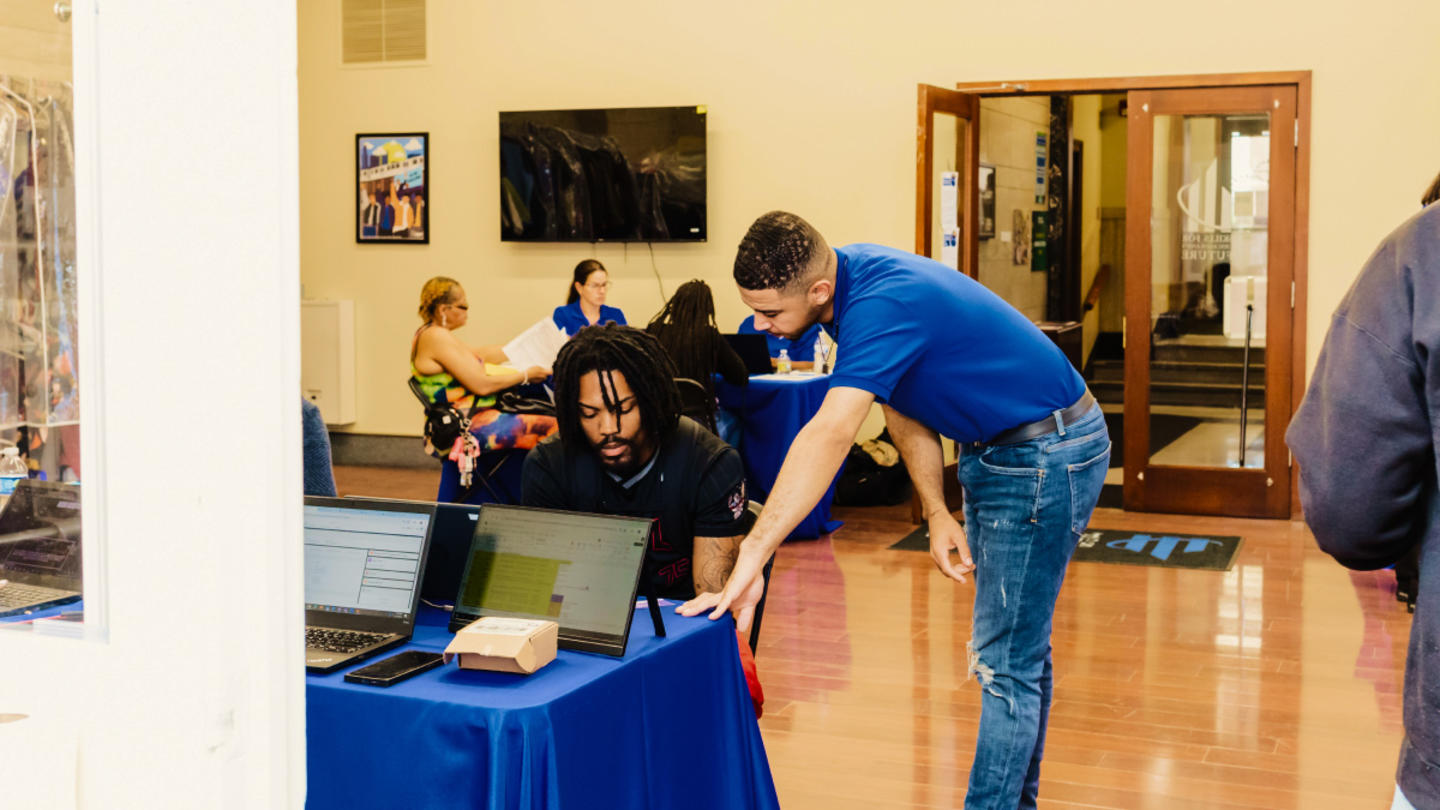There are more than 10 million open jobs in America — and at least 680,000 of them don’t require a college degree. There are also millions of Americans currently struggling to find employment. How can we bridge the gap?
“The things that employers are overlooking will break your heart,” said Bridget Altenburg, the CEO of Skills for Chicagoland’s Future. “The job search is still very much about networking, and it’s not a level playing field. When our employers get to know these candidates, they can see how hard-working, personable, positive people they are.”
“We had one candidate who had everything you’d want on a team, but her resume was pink and never would have made it through traditional hiring processes,” Altenburg said. “Companies need to think more broadly about what they want so they don’t miss out.”
Skills for Chicagoland’s Future has an answer. The nonprofit is working to help employers see the value of candidates they may otherwise overlook. It acts as a professional network for job-seeking individuals, levels the playing field for applicants, empowers them to hone soft skills like resume and interview preparation, and connects them with credentialing programs. Many candidates from economically disadvantaged communities are already qualified and determined — they just lack the networks and workplace savvy to get connected to the right hirers.
At the same time, restrictive hiring practices keep employers from recognizing the human behind the resume. Skills for Chicagoland’s Future is helping connect companies with real people and the variety of unique talents, strengths, and personalities they have to offer — and everyone is benefiting from it.
Breaking down the invisible barriers to entry
Altenburg described Skills for Chicagoland’s Future as “the last mile between candidates and the employer.” Rather than train job applicants in the skills they’ll need for a role, the organization elevates the talents and experiences an individual already has: Many candidates have had an array of valuable work experiences and are determined to contribute — but the ins and outs of resume writing, interviewing skills, and other aspects of the job search are anything but transparent. These nuances can, unfortunately, keep an individual from opportunities to demonstrate their potential.
The organization starts by working directly with employers to understand their needs. That means Skills for Chicagoland’s Future can give a candidate job-specific advice, homing in on the company’s exact needs.
“We know exactly how to guide our candidates,” Altenburg said. “We work with employers, and we get a commitment to hire from them. So when we’re talking to our candidates, it’s a very specific conversation. ‘This is what you’re going to be asked about. This is what your resume needs to say. Make sure you highlight these skills and this experience that you have.’ It’s a specific handoff to an employer that is already committed to hiring from our candidate pool.”
The result is a win-win for both sides. Candidates have a better shot at the roles they’re applying for, and employers have a fresh pipeline of talent that is already familiar with their needs and mission.
The organization works with employers to show them where they may inadvertently be creating barriers to entry for talent pools from certain communities. For example, Altenburg explained that an employer may remove the bachelor’s degree requirement for a role on paper but, in practice, still default to only considering applicants with a degree. In that case, Altenburg’s team tells the employer, “Here are 10 people you missed because, for some reason, you’re still requiring bachelor’s degrees, and we see immediately who’s being left behind,” she said.
“What employers have to gain is a diversity of experience and thought,” she continued. “Some job descriptions are so specific, you’re just going to get the same person over and over again. [But] you need people that are going to be nimble and innovative, and if you’re just hiring the same kind of person over and over again, you’re missing out on that.”
This is especially true in the face of the national labor shortage. Of the 10 million job openings currently available in the United States, there are only 6.5 million unemployed workers to fill them. Employers that broaden their hiring parameters will be better positioned in their markets.
“It’s not just about hiring people from disinvested communities, [although] that’s very important,” Altenburg said. “It’s not just about hiring people that don’t have bachelor’s degrees. It’s about the business imperative of a labor participation rate that is not getting any better. If you do the ‘same old’ in the world that we’re living in now, it’s just not going to be enough.”
Sign up for Stand Together's Rethinking Work & Learning newsletter to get the latest stories, ideas, and trends on the future of employment.
Making the job search more human-centered
Because companies are inundated with applications for any open role, human resource departments need extra support. Many first-pass tasks of job hiring have been automated. Application tracking systems sift through resumes and whittle the pool down. This might save time and labor for employers, but it also risks missing out on the valuable human uniqueness that a computer can’t recognize.
“We’ve created systems designed to take a massive pool and make it as small as possible,” Altenburg said. “We need to think about how we’re welcoming people into the process. There are so many things that kick people out. If you don’t match your resume to the job description’s keywords, the algorithm spits you out.”
Not to mention, job qualifications can look different for every candidate. For instance, customer service skills gained working in hospitality can be transferred to call center roles, caring for a relative who is ill can get job seekers ready for a role in health care, and being an assistant on a high school basketball team can demonstrate how to be a team player.
When an application tracking system is reduced to keywords, qualifications, and numbers, it removes humanity from the process. This can keep employers from being able to recognize a potential hire’s unique attributes and personal characteristics.
“You don’t even get a chance to talk to a human being if you are just applying on the website,” Altenburg said. Instead, she encourages employers to start broadening their hiring processes with two crucial steps:
- Remove the bachelor’s degree requirement for roles except when it’s absolutely necessary, and
- Take the time to have a human read through every application without relying on application tracking systems.
When employers take an intentional look at how to make their hiring practices more welcoming to all candidates, they may very well end up with a workforce strengthened with a greater diversity of talent and experience — as Altenburg herself can attest.
“It was kind of funny,” Altenburg said, recalling a time when she realized that one of the job postings for Skills for Chicagoland’s Future contained a bachelor’s degree requirement. “It was too specific. … We changed the job description and ended up bringing somebody in and had her do a presentation. She was by far the best presenter we had. We could see her on the team, and I said, ‘This is what we’re trying to get our employers to do. Think broader.’ [The new employee] is already changing how we do our business. She’s changing how we think about our business. So that’s just me personally as a medium-sized nonprofit — imagine what that can look like when it’s done to scale.”
At scale, it could mean a workforce where people are recognized for their unique skills and talents as individuals — resulting in employees who are more fulfilled, motivated, and creative.
Those benefits aren’t just for employees and their companies — they can also spread to the surrounding community and local economy. Workplaces are more efficient and profitable when they have access to broader talent pools with a greater breadth of experiences and backgrounds.
“I think it really can change the way your business operates,” Altenburg said. “It changes the dynamic with your teams. It can push innovation more quickly. … That kind of diversity of knowledge and experience is critical. The world isn’t getting any slower, and we need to make sure that we’re bringing in talent that’s going to help us stay abreast of it.”
Moving up the career ladder and across the country
Over the last decade, Skills for Chicagoland’s Future has worked with more than 120 employer partners to place over 12,000 people into jobs in Chicago, generating an economic impact of $307.3 million. The program is looking to expand and help employers find great overlooked talent.
Altenburg hopes that as companies broaden their talent pools, more newcomers to the professional world will feel empowered to leverage their unique interests and passions, intentionally pursuing careers of purpose and meaning.
“If you take that brain power and that ability and innovation, they can be so successful,” Altenburg said.
Recently, Altenburg invited one job seeker to speak at a board meeting. When asked what employers can do to lift candidates like her, she shared a simple solution.
“Just give us a chance,” she said. “I’m going to bring great things to your company. I just need a chance.”
***
Skills for Chicagoland’s Future is supported by the Charles Koch Foundation, which, as part of the Stand Together community, funds cutting-edge research and helps expand postsecondary educational options.
Learn more about Stand Together’s efforts to transform the future of work, and explore ways you can partner with us.

Here’s how to bridge the disconnect between employers and employees.

Lessons learned from Colorado.

Could a program built to develop music talent change the way we think about education?

How to help the talent of today fill the jobs of tomorrow.
